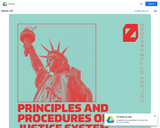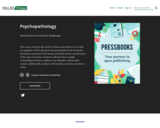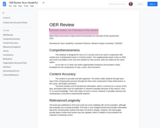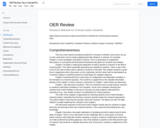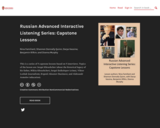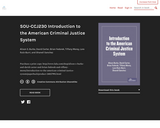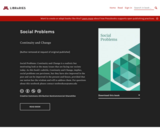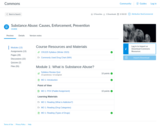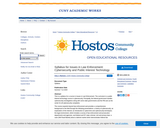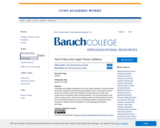Short Description: This OER covers law enforcement, criminal courts, sentencing, penal institutions, …
Short Description:
This OER covers law enforcement, criminal courts, sentencing, penal institutions, and community-based sanctions. It also includes historical and contemporary perspectives on components of the criminal justice system, as well as the legal and constitutional frameworks in which they operate. Order a print copy: http://www.lulu.com/shop/alison-s-burke-and-david-carter-and-brian-fedorek-and-tiffany-morey/introduction-to-the-american-criminal-justice-system/paperback/product-24027992.html
Long Description:
This OER covers law enforcement, criminal courts, sentencing, penal institutions, and community-based sanctions. It also includes historical and contemporary perspectives on components of the criminal justice system, as well as the legal and constitutional frameworks in which they operate.
Learning Objectives: Students will increase the breadth of their knowledge and understanding of the American Criminal Justice System. Students will enhance their critical thinking skills via writing, reading, and discussion. Students will learn the history, functions, responsibilities, processes, and importance of each component of the criminal justice system. Students will become familiar with research and its relationship to criminal justice policy. Students will use the foundations learned about the American criminal justice system in future CCJ courses. Additionally, myths and controversies are incorporated in the course covering the above-noted content areas in the American criminal justice system. In our experience, this tends to be the most exciting part of the class. It also helps students build all learning outcomes through assignments, readings, and materials covered in class. The primary goal when writing this book was to make it easy to read, with fun examples, thought-provoking discussion questions, and is accessible to all to ensure that students would read. The content level targeted first-year students who are taking their first course in Criminology and Criminal Justice, but also as a general education course for those that may not intend to major. In order to ensure each area has accessible materials for the course and meets our learning objectives and goals, we have conducted preliminary research in order to determine our best option is moving forward.
Order a print copy: http://www.lulu.com/shop/alison-s-burke-and-david-carter-and-brian-fedorek-and-tiffany-morey/introduction-to-the-american-criminal-justice-system/paperback/product-24027992.html
Word Count: 123812
ISBN: 978-1-63635-067-7
(Note: This resource's metadata has been created automatically by reformatting and/or combining the information that the author initially provided as part of a bulk import process.)
